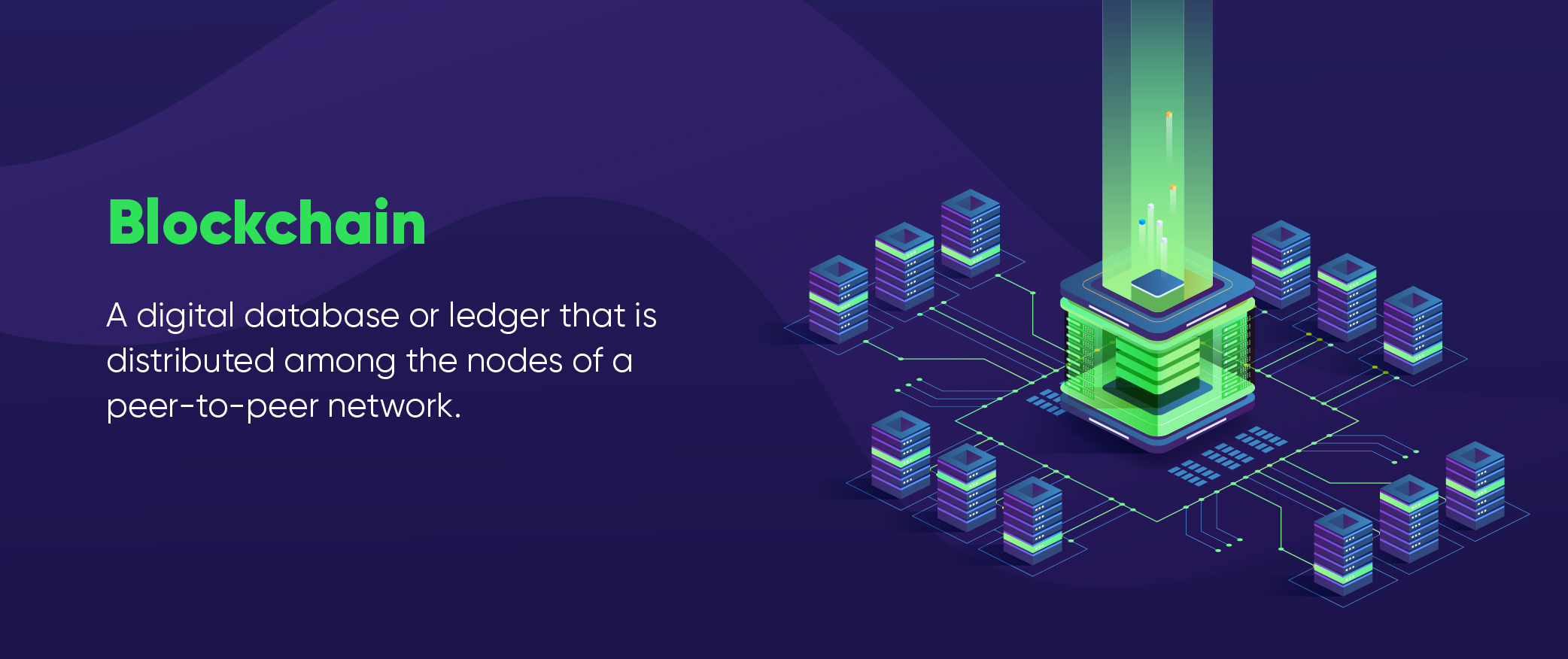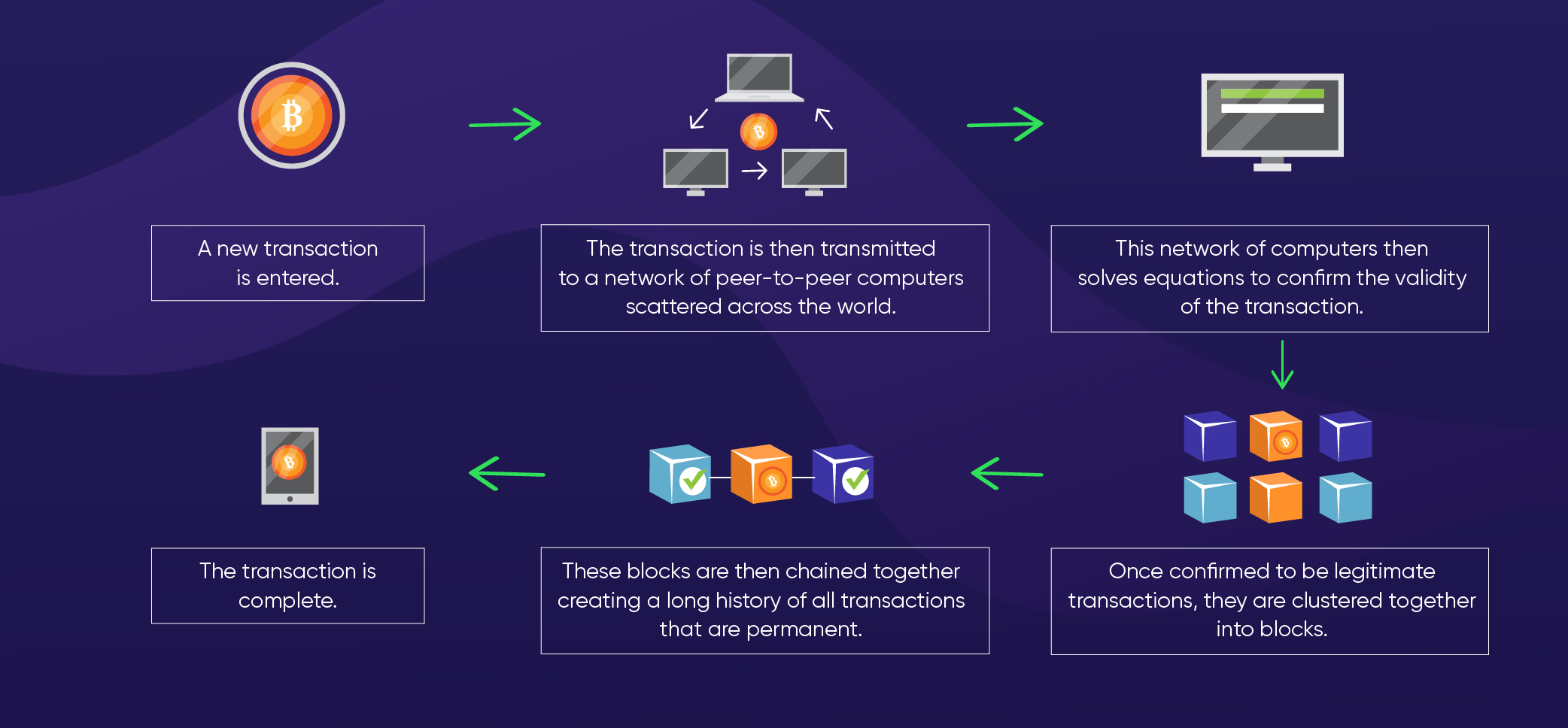
Introduction
Blockchain & Web3 Services Trusted By Leaders
- Develop innovative solutions using our state-of-the-art blockchain expertise.
- Achieve accelerated growth with robust & scalable Web3 consulting.
- Unlock 360-degree security with our top-rated blockchain development.
What is Blockchain Technology? Why does your business need it?
Blockchain technology enhances the trust, security, transparency, and traceability of shared data within a business network. By leveraging these capabilities, businesses can enable cost savings through improved efficiencies and streamlined operations. Blockchain is an innovative technology often referred to as a “trustless” network because it eliminates the need for complete trust between business partners. Instead, trust is established through the inherent security features of blockchain. In this blog, we will explain what is blockchain technology, why blockchain is important and its examples, so at the end of this insight, you will be able to know why blockchain needs to be used by every business. Let’s get started;What is Blockchain Technology?
Blockchain technology is a decentralized and transparent system originally developed in 1991 to store and secure digital data. In addition, it functions as an open ledger that can be accessed by multiple parties simultaneously.
→ A key feature of blockchain – is Immutability
It means that recorded information is difficult to alter without consensus from all participants. Each new record is stored as a block with a unique hash, and these blocks are linked together to form a chain, hence the name “blockchain.”→ An important characteristic of blockchain – Data in Chronological Order
This recorded order ensures a transparent and auditable history. Once data is recorded on the blockchain, it becomes virtually immutable, enhancing security and trust within the system.How does blockchain work?
Blockchain works through a combination of cryptographic algorithms, distributed consensus mechanisms, and decentralized networks. Here’s a simplified explanation of how blockchain technology operates:
1. Distributed Ledger
Blockchain is a distributed ledger that records transactions across multiple computers, known as nodes. Each node maintains a copy of the entire blockchain, ensuring transparency and redundancy.
2. Blocks and Transactions
Transactions are grouped together in blocks, which contain a set of data, such as the details of the transactions, timestamps, and a unique identifier called a hash. Each block also includes the hash of the previous block, creating a chain-like structure.
3. Cryptographic Hashing
A cryptographic hash function converts the data in each block into a fixed-size string of characters, known as a hash. This hash serves as a unique identifier for the block and is crucial for maintaining the integrity of the blockchain.
4. Consensus Mechanisms
To validate and add new blocks to the blockchain, a consensus mechanism is employed. Different consensus mechanisms, such as Proof of Work (PoW) or Proof of Stake (PoS), ensure that the majority of nodes agree on the validity of transactions and the order in which they are added to the blockchain.
5. Decentralization and Trust
The decentralized nature of blockchain means that no single entity has control over the entire network. Transactions are verified and validated by multiple nodes, ensuring transparency and reducing the risk of fraud or manipulation.
6. Immutability
Once a block is added to the blockchain, it is extremely difficult to alter or tamper with. Changing the data in a block would require modifying the hash of that block and all subsequent blocks, which would require an enormous amount of computational power and the consensus of the majority of the network.
7. Smart Contracts (Optional)
Smart contracts are self-executing agreements written in code that automatically execute predefined actions when specific conditions are met. They enhance the functionality of blockchain by enabling programmable and automated transactions.
Moreover, Blockchain has a decentralized nature and cryptographic techniques ensure the integrity and immutability of data, making it an innovative solution for various industries.Benefits of Blockchain
Blockchain technology addresses various business issues, making it a powerful solution for organizations across industries. Let’s explore some important benefits of blockchain and provide examples of industries that are leveraging these advantages;1. Enhanced Security
Blockchain’s decentralized and immutable nature ensures robust security for data and transactions. Industries such as finance, healthcare, and supply chain management utilize blockchain to protect sensitive information and prevent unauthorized access.
2. Improved Transparency
The transparent nature of blockchain enables real-time visibility and audibility of transactions. This benefit is particularly valuable in industries like retail, where supply chain transparency is crucial for ensuring product authenticity and preventing counterfeiting.
3. Increased Efficiency
By eliminating intermediaries and automating processes, blockchain enhances operational efficiency. Industries such as logistics and supply chain management benefit from streamlined operations, reduced paperwork, and faster transactions.
4. Enhanced Traceability
Blockchain’s immutable ledger allows for the traceability of assets throughout their lifecycle. This is especially beneficial in industries like food safety, where tracking the origin and quality of products is essential for ensuring consumer health.
5. Cost Savings
Blockchain eliminates the need for intermediaries and minimizes administrative overhead, leading to significant cost savings. Industries like banking and finance leverage blockchain to reduce transaction fees and operational expenses.
6. Improved Data Integrity
The immutability of blockchain ensures the integrity and accuracy of data. Industries such as legal services and intellectual property management rely on blockchain to establish irrefutable records and protect intellectual assets.
7. Decentralization
Blockchain’s decentralized architecture removes single points of failure and enhances system resilience. Industries like energy and utilities explore blockchain to create decentralized energy grids and facilitate peer-to-peer energy trading.
8. Smart Contracts
Blockchain platforms support the execution of self-executing smart contracts, enabling automated and trustless transactions. Industries like real estate leverage smart contracts to streamline property transfers and eliminate the need for intermediaries.
9. Disintermediation
Blockchain enables peer-to-peer transactions, eliminating the need for traditional intermediaries. Industries like peer-to-peer lending and crowdfunding platforms leverage blockchain to connect borrowers directly with lenders, reducing costs and increasing accessibility.
10. Improved Compliance
Blockchain’s transparent and immutable nature simplifies compliance with regulatory requirements. Industries like healthcare and pharmaceuticals utilize the blockchain to ensure compliance with data privacy regulations and secure patient records.
Why is Blockchain important?
As blockchain technology continues to evolve, more sectors are discovering innovative use cases and exploring the potential of blockchain to address their specific business challenges. By embracing blockchain, organizations can unlock new opportunities, enhance efficiency, and drive innovation in their respective industries. Let’s explore some potential reasons why blockchain is important.Comparison of Traditional Business Systems with Blockchain-based Systems

Blockchain Technology: Revolutionizing Industries
At BloxBytes, a leading blockchain development company, we harness the power of blockchain technology to drive innovation and deliver cutting-edge solutions to our clients.1. Banking:
In the traditional banking system, transferring funds internationally is costly and time-consuming. However, blockchain disrupts this by enabling peer-to-peer payment systems with heightened security and minimal fees. With blockchain, we offer our clients instant and borderless payments, eliminating the need for intermediaries and streamlining financial transactions.
2. Cybersecurity:
Cyberattacks pose a significant threat in today’s digital landscape. By leveraging blockchain, we provide robust cybersecurity solutions. The decentralized nature of blockchain, combined with cryptographic algorithms, ensures data integrity and prevents unauthorized access. We integrate blockchain into our clients’ systems to create transparent and secure platforms that safeguard sensitive information.
3. Supply Chain Management:
Supply chain management faces challenges such as a lack of transparency and coordination. Blockchain’s distributed ledger technology revolutionizes this sector by offering end-to-end traceability and verification. Our blockchain solutions enable real-time tracking of products, ensuring transparency and reducing service redundancy. Through our expertise, we empower supply chain partners to seamlessly audit and verify transactions, enhancing efficiency and reliability.
4. Healthcare:
Blockchain technology addresses the shortcomings of the healthcare system, where delays and data corruption can jeopardize patient care. With blockchain, we provide instant access to medical data while ensuring its security and privacy. By leveraging blockchain’s decentralized architecture, we enable secure storage and sharing of medical records, empowering healthcare providers and patients alike.
5. Government:
Blockchain holds immense potential in transforming the government sector. Traditional voting systems are prone to fraud and inefficiencies. Through blockchain, we offer secure and transparent voting platforms that ensure accurate vote counting and protect citizens’ identities. By leveraging blockchain’s immutable nature, we provide tamper-proof records, fostering trust and enhancing democracy.
Why Do Businesses Need Blockchain?
Here are the key reasons why integrating blockchain can be a game-changer for businesses:- Blockchain provides a secure and tamper-proof environment for storing and transferring data. Its decentralized nature, cryptographic algorithms, and consensus mechanisms make it highly resistant to hacking and unauthorized access.
- Blockchain’s transparent nature enables businesses to create an immutable and auditable record of transactions. Every transaction is recorded on a shared ledger visible to all participants, eliminating the need for intermediaries and enhancing trust among stakeholders.
- Blockchain streamlines business processes by automating and digitizing manual, paper-based tasks. Smart contracts, powered by blockchain, enable self-executing agreements based on predefined rules, eliminating the need for intermediaries and reducing administrative costs.
- Implementing blockchain technology can lead to significant cost savings for businesses. By eliminating intermediaries and automating processes, businesses can reduce transaction fees, paperwork, and operational overhead.
- Customers can have full visibility into the origin, authenticity, and journey of products and services, fostering trust and loyalty. Additionally, blockchain-based loyalty programs and personalized offerings can enhance customer engagement and satisfaction.
- Provides end-to-end traceability and efficiency with real-time tracking of goods and authenticity with regulations. Businesses can optimize inventory management, reduce counterfeit products, and build stronger relationships with suppliers and customers.
- Disintermediation reduces costs, improves efficiency, and empowers individuals and businesses to have direct control over their transactions and assets. It opens up new possibilities for decentralized applications, financial services, and peer-to-peer marketplaces.
Conclusion:
In summary, businesses need blockchain technology to revolutionize their operations by enhancing security, increasing transparency, improving efficiency, achieving cost savings, enhancing the customer experience, streamlining supply chain management, and embracing disintermediation. By harnessing the power of blockchain, businesses can unlock innovation, gain a competitive edge, and thrive in the digital era. At BloxBytes, we understand the fundamentals of blockchain technology and apply them strategically to disrupt industries. We utilize publicly distributed ledgers, encryption techniques, proof-of-work mechanisms, and mining processes to ensure the integrity and security of our clients’ blockchain solutions. With a team of skilled developers and a commitment to innovation, we empower businesses to embrace the advantages of blockchain technology. Follow BloxBytes Journal for more insights!
Follow BloxBytes Journal for more insights!